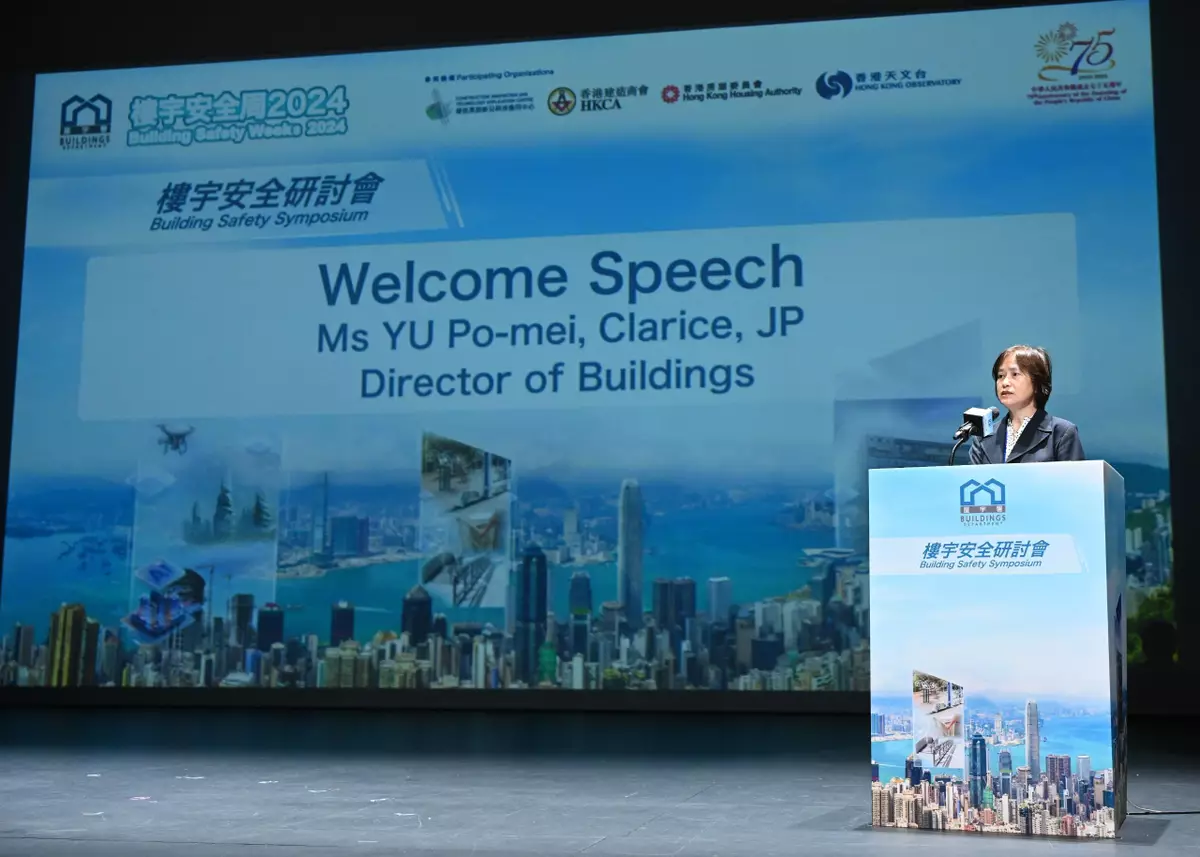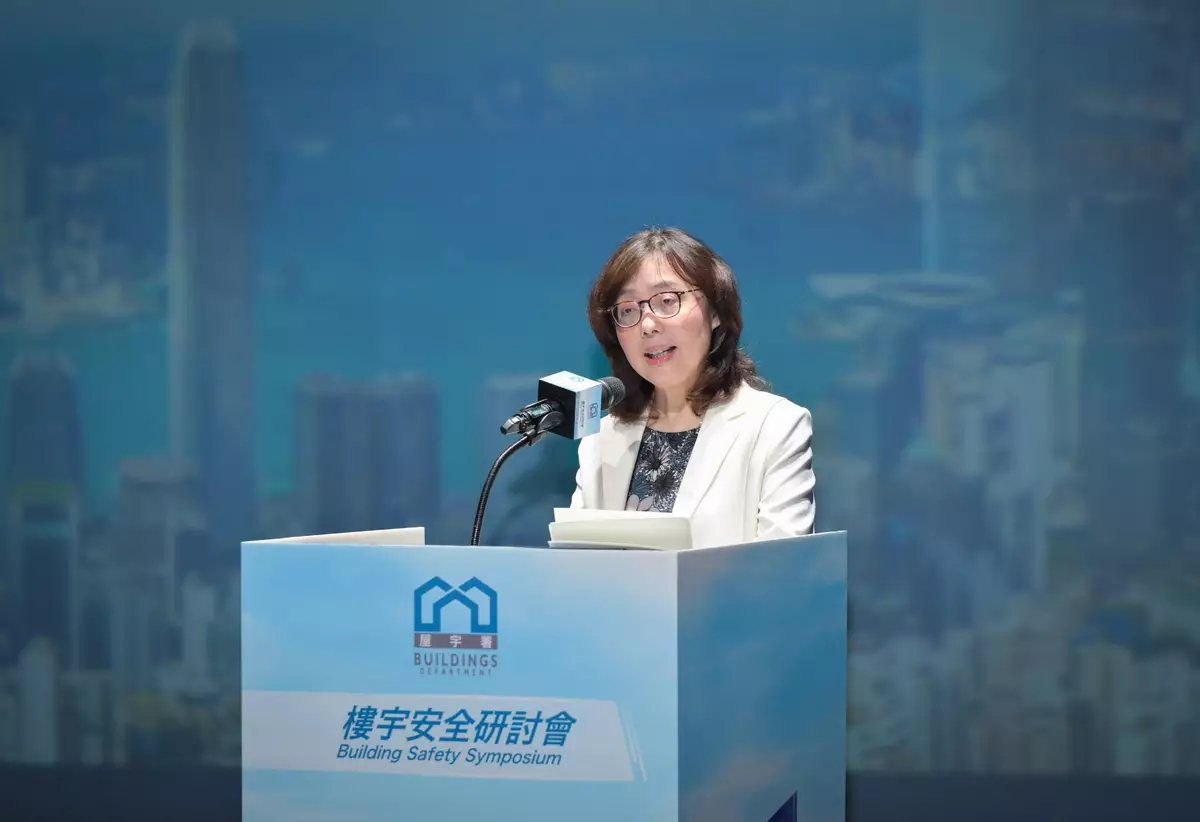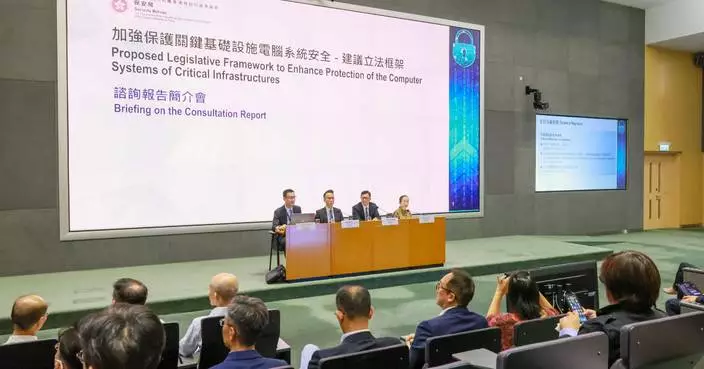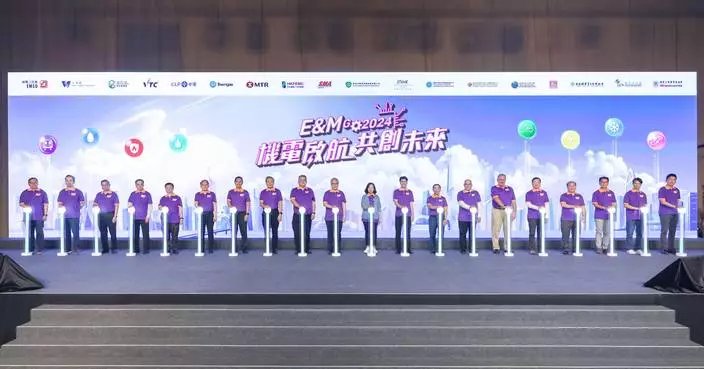EDB announces Saint Francis University becomes university of applied sciences
The Education Bureau (EDB) today (November 1) announced that Saint Francis University (SFU), having successfully gone through a stringent institutional review by the Hong Kong Council for Accreditation of Academic and Vocational Qualifications (HKCAAVQ) and fulfilled all relevant criteria as confirmed by the EDB, has become a university of applied sciences (UAS).
An EDB spokesman said, "The Government actively promotes the development of UASs to enhance the status of vocational and professional education and training (VPET) at the degree level and provide an alternative pathway to success for young people. The EDB is pleased that SFU has demonstrated its vision, commitment, capabilities and experience in providing high-level VPET programmes in close collaboration with relevant industries, and has successfully gone through the stringent review by the HKCAAVQ and met all of the relevant criteria, becoming the second UAS in Hong Kong."
In assessing SFU's application for becoming a UAS, the Government has taken into account relevant factors, including the outcome of the institutional review for UAS by the HKCAAVQ, and SFU's experience in operating applied degree programmes and other VPET programmes. The institutional review by the HKCAAVQ focuses on the commitment and competence of SFU to operate as a UAS at both institutional and programme levels, based on three domains, namely governance, management and quality assurance; learning environment and learner support; and industry collaboration and recognition.
SFU was founded as the Caritas Francis Hsu College. It began offering degree programmes and changed its name to the Caritas Institute of Higher Education in 2011, and was conferred a university title and was approved to change its name to SFU in January 2024. In the 2024/25 academic year, SFU offers two master's degree programmes, 13 bachelor's degree programmes (including two applied degree programmes) and four higher diploma programmes, with about 3800 full-time and 800 part-time students in total.
Similar to the Hong Kong Metropolitan University, the first UAS in Hong Kong, SFU is subject to ongoing reviews by the HKCAAVQ to ensure further development of its maturity and competency as a UAS. It is also required to submit annual progress reports to the EDB.
To bolster the UAS development, as announced in "The Chief Executive’s 2024 Policy Address", the Government has allocated a start-up fund of $100 million to support UASs and aspiring institutions to establish a UAS alliance this year to embark on joint promotion with the industries and stakeholders, including organising international conferences, strengthening collaboration with applied sciences institutions from other places and initiating collaboration and research on applied education at the post-secondary level. Priority will be accorded to eligible programmes of a UAS for inclusion under the Study Subsidy Scheme for Designated Professions/Sectors and eligible applications from UASs when considering applications for relevant support measures, including the EDB's Quality Enhancement Support Scheme and Enhancement and Start-up Grant Scheme for Self-financing Post-secondary Education.
Self-financing post-secondary institutions planning to apply for becoming a UAS should have a university title and possess the vision, commitment, capabilities and experience in operating an institution that embodies the key features of a UAS, including:
(a) the vision, maturity and capability in providing high-level VPET programmes ranging from Levels 5 to 7 under the Hong Kong Qualifications Framework, blending theory and practice with substantial workplace learning and assessment, having flexibilities in curriculum design, admission and delivery mode, and having recognition and support from industries and professions; and
(b) the experience in providing (an) applied degree programme(s) in at least one area of applied sciences for which it has attained the programme area accreditation or self-accrediting status, and the commitment to developing and providing more applied degree programmes.
The relevant criteria and application procedures are set out in the Manual for Institutional Review for UAS on the HKCAAVQ website (www.hkcaavq.edu.hk/en/accreditation/institutional_review/). Applications are accepted all year round. Eligible institutions may apply for combining the institutional review for becoming a private university and that for a UAS, subject to the EDB's approval.
Building Safety Symposium 2024 held
More than 400 building professionals, property management practitioners, government officials and academics attended the Building Safety Symposium organised by the Buildings Department (BD) at the Y-Theatre, Youth Square, Chai Wan today (November 1) to exchange views on the application of innovative technologies to enhance building safety as well as the safety of construction works.
Speaking at the symposium, the Secretary for Development, Ms Bernadette Linn, said as a regulator, the Government must provide a legal framework that meets the needs of the society. The Government is conducting a comprehensive review of the Buildings Ordinance in three major areas, including encouraging owners to expedite building repairs; rationalising the enforcement policy on unauthorised building works (UBWs); and regulating more effectively the quality and safety of building works. The main approach of the review is to increase penalties while lowering prosecution threshold and rationalising enforcement priorities. A public consultation on specific proposals is expected to be launched by the end of this year, with relevant legislative amendment proposals to be submitted in the first half of 2026. In addition, the Government has actively adopted innovative technologies to enhance enforcement and work efficiency, including using new technologies such as drones and artificial intelligence to speed up building inspections, strengthening enforcement against UBWs and defective signboards, and enhancing site safety. The Government will also soon put forward elderly-friendly building design proposals to tie in with the aging in place policy. To promote Building Information Modelling technology, the Government has announced a roadmap for the preparation and submission of building plans, which is generally supported by the industry, with a view to making it mandatory for the private sector to adopt the technology in 2029. The Government will continue to work with the industry to make preparations.
In her welcoming speech, the Director of Buildings, Ms Clarice Yu, said that regarding the adoption of innovative technologies, the BD will continue to implement and enhance the Electronic Submission Hub and commence the consultancy study and consult stakeholders on the full adoption of Building Information Modeling by the private sector for preparation and submission of plans for the BD's approval. The BD has introduced mandatory measures since July this year requiring the adoption of two alert systems of the Smart Site Safety System for superstructure works with an estimated construction cost over $30 million, and is exploring the feasibility of extending the systems to other types of works; and to use drones and artificial intelligence for regularly conducting special inspections on the external walls of higher-risk buildings. All these measures are the BD's efforts to leverage smart technologies to facilitate building design and construction, enhance site safety, and promote preventive maintenance of existing buildings.
Ms Yu said that the BD will continue to apply its professional expertise and innovative approach and work together with the industry to create a safer and sustainable built and living environment.
The Building Safety Symposium is a highlight event of Building Safety Weeks 2024. The theme of this year's symposium is "Building for Our Future: Smart Technologies for Building Safety and Sustainability". In the symposium, a number of local experts spoke on the following topics:
• Extreme Weather in Hong Kong - the Past and the Future;
• The 2°C Impact on Building Safety;
• Smart Management for Safe Construction;
• The Role of Modern Technologies in Construction Safety;
• Promoting Elderly-friendly Building Design;
• Application of New Quality Productive Forces in Enhancing Safety and Sustainability in Building Management;
• Transforming Public Housing Management with Smart Technologies; and
• Enhancing Building Safety in Hong Kong: Challenges and Effective Strategies.
In addition to the above speeches, the symposium also featured two panel discussion sessions. An innovative technology booth was set up in the venue's foyer to demonstrate how the BD utilises drones and artificial intelligence to assist in inspecting the external walls of old buildings.
An award ceremony for the Exploring Livable Communities - Short Video Competition under the Building Safety Pioneer Programme and the Building Facade Design Competition was also held today at the same venue. The two competitions aimed to encourage students and members of the public to participate in building a more liveable city and to understand that building maintenance and repair are closely related to daily life.
In addition, the BD will hold the Building Safety Carnival on November 9 and 10; and November 16 and 17, at Tuen Mun Town Plaza and Olympic City 2, respectively. This carnival will serve as the finale of this year's Building Safety Weeks, allowing the public to acquire proper building safety knowledge in a fun and engaging way through game booths.

Building Safety Symposium 2024 held Source: HKSAR Government Press Releases

Building Safety Symposium 2024 held Source: HKSAR Government Press Releases










